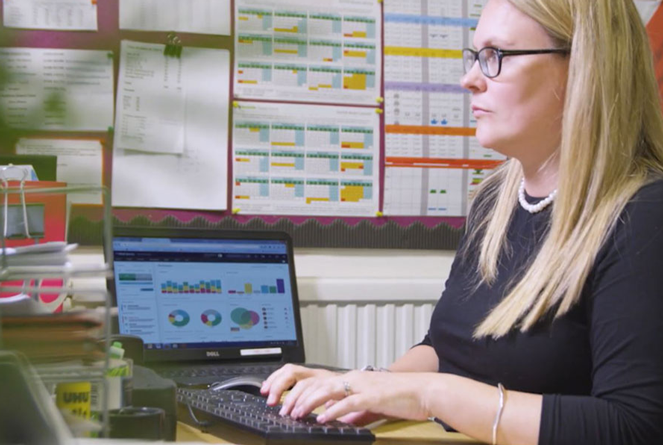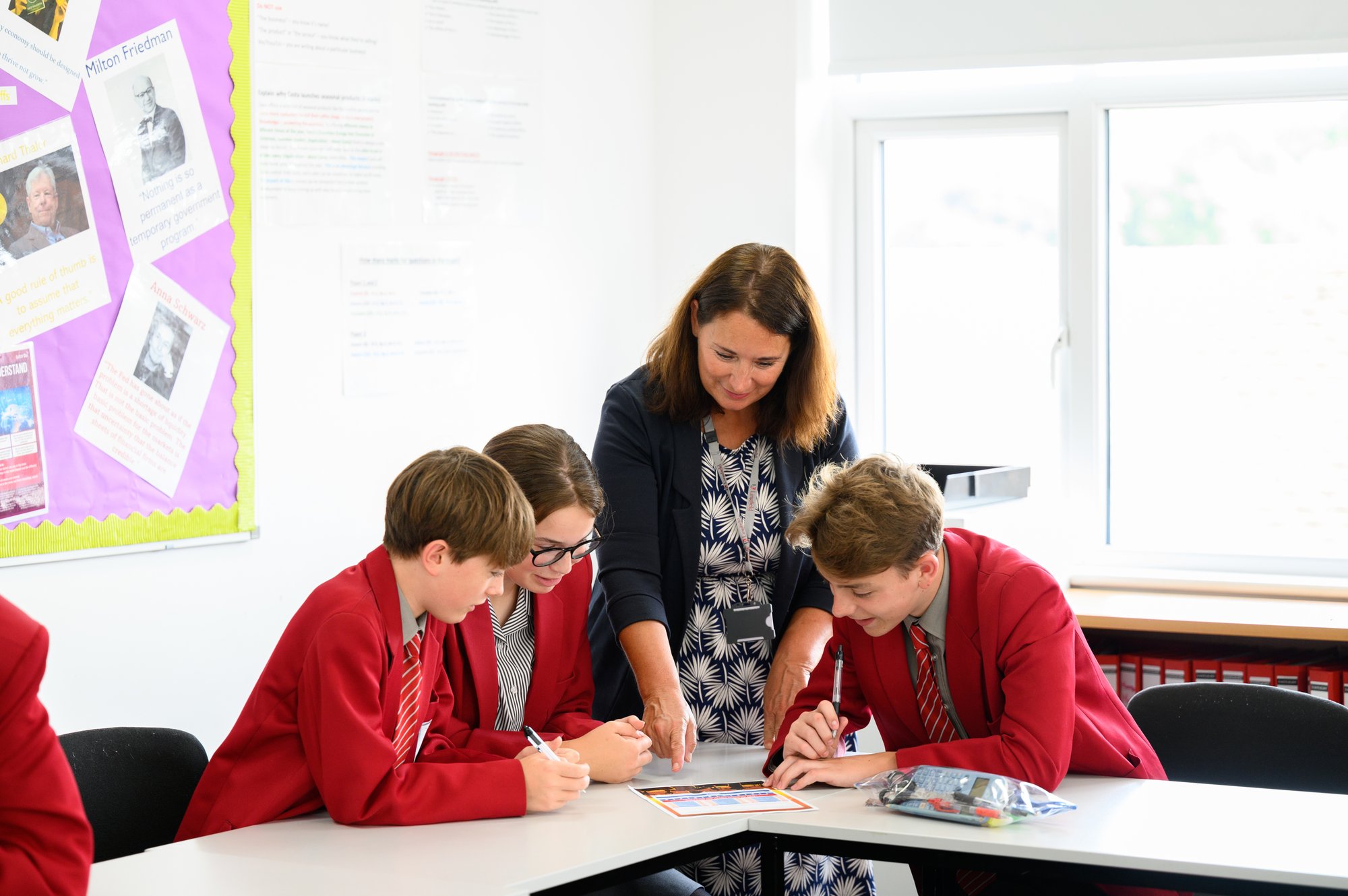Introduction
In the second instalment of this two-part series, linked to recent publications Best start in life part 3: the 4 specific areas of learning and, Strong foundations in the first years of school, we turn our focus to writing and, more specifically, what key foundations must we establish to help pupils become fluent, confident writers?
Handwriting
Fluent writers can write (or type) legibly at a reasonable pace, and a key factor in this is pencil grip. The Best Start in Life report emphasises the importance of developing early skills for holding a pencil correctly. This focus extends beyond the Literacy element of the Early Years curriculum, as the report highlights:
"Well-planned and sequenced curriculums for Physical Development and Expressive Arts and Design can ensure that children have the skills and strength they need to develop a comfortable and efficient pencil grip. This makes it easier for them to learn handwriting and how to form letters and numbers correctly when they are older".
The formal teaching of letter formation starts in Reception. At first, this may be linked to phonics, but it’s important to cover all aspects of the handwriting curriculum, such as working on letter groups and ensuring each letter is formed correctly. Clear demonstrations of letter formation, using simple instructions if helpful, are key. It’s also important to check how pupils are forming letters, not just the finished result.
Once pupils can form letters correctly, the next goal is to build speed and fluency. You can challenge pupils by timing how many words they can write in one minute and encouraging them to improve their score over time.
Questions to think about in your school:
- Do we spend enough time teaching handwriting in Reception and Key Stage 1?
- Do pupils get enough opportunities to focus on writing neatly and quickly without being distracted by other tasks?
- Do teachers regularly check how pupils are forming letters and correct them when needed?
- Does the feedback we give pupils help them improve their handwriting skills?
Spelling
In my work with English Subject Leaders, I often hear them say spelling is an area of concern for them within their schools. They recognise this is, at least in part, because with so many elements in the English Curriculum, spelling is often the first to be neglected. To build a firm foundation in writing, it is essential to ensure that sufficient time is devoted to the teaching of spelling throughout YR and KS1.
Spelling in YR and Y1 should be linked closely to the phonics being taught. Phonic programmes include spelling, but when time is short, it may not receive the attention it deserves. Sometimes, reading is given priority to ensure that pupils achieve well in the phonics screening check at the end of Y1, meaning pupils may miss out on vital spelling skills.
Pupils need to learn how to segment words into the component phonemes and how to record what they hear. If they are having difficulty writing words, it is important to find out why this is the case – if they cannot segment, work on auditory discrimination and related skills may be needed. If they cannot remember how to record the phonemes, multi-sensory work on phoneme/grapheme links is required, along with an alphabet strip or phonics mat they can refer to as a prompt.
Teaching pupils how to spell common exception words is important – again, this usually forms part of phonics programmes, but it is important to ensure that time is devoted to learning how to spell the words as well as recognise them for reading. Look, Say, Cover, Write, Check is one tried and tested way of doing this but only if all the elements are carried out as they should be. Simply copying words does not lead to learning how to write them. Dictation, mentioned in the Strong Foundations in the first years of school report, is also a useful tool.
Some questions for you to consider:
- Do our phonic lessons include time spent on segmenting and spelling skills?
- Do we devote time to ensuring pupils can spell common exception words?
- Are there opportunities for pupils to practice writing words they know in order to build fluency and automaticity
- Do we use dictation as a method of checking what pupils have learnt?
- By the end of KS1, do all pupils have a bank of known words they can draw on when writing?
Writing simple sentences
The National Curriculum emphasises the need for pupils to say aloud what they are going to write about and compose sentences orally before writing them down. Leading up to that process, pupils need lots of opportunities to talk, explore potential vocabulary and discuss what they might write about.
A concern highlighted in Strong Foundations in the first years of school and indeed in the Ofsted English report March 24 Telling the story: the English education subject report is that complex tasks are often introduced too early when pupils are not ready for them. In writing, this might be that they are asked to focus on a particular genre, for example, letter writing or report writing, before they have acquired the skills they need to do so.
Along with being able to form letters correctly and spell words by hearing and recording the sounds in them, the other Early Learning Goal for writing is that pupils can Write simple phrases and sentences that can be read by others. In year 1, they are expected to sequence sentences to form short narratives – this could take the form of retelling a well-known story or writing a recount about a school trip. It is not until Y2 that a broader range of genres are included, so let’s keep things simple in YR and Y1 and focus on composing and writing simple sentences, spelling and handwriting. In other words, laying that strong foundation so pupils have the skills in place to flourish as writers as they move up through school.
Consider:
- Do we give pupils in YR and Y1 the opportunity to say out loud what they are going to write before they do so?
- Do they compose their sentences orally before writing them down?
- Is our focus on the basic skills of writing or are we focused on pupils being able to write in a range of genres?
Expert training to help your pupils excel in writing
Juniper's expert trainers, primarily former teachers, headteachers, and educators, know what it takes to help your pupils truly excel in writing.
We offer a range of courses exploring many of the aspects discussed above, such as Teaching Writing in KS1, Teaching Handwriting, Teaching Spelling, and Improving Literacy in KS1.
To see our full range of courses, visit www.junipercpd.org and search for live training courses.
Or contact training@junipereducation.org to enquire about bespoke training and support.


/Primary%20school%20.jpg?width=2000&name=Primary%20school%20.jpg)








.png?width=940&height=788&name=Lingfield%20College%20Case%20Study%20(5).png)
-1.png?width=1000&height=833&name=National%20Association%20of%20Head%20Teachers%20(3)-1.png)
-3.png?width=1080&height=1080&name=Untitled%20design%20(10)-3.png)







